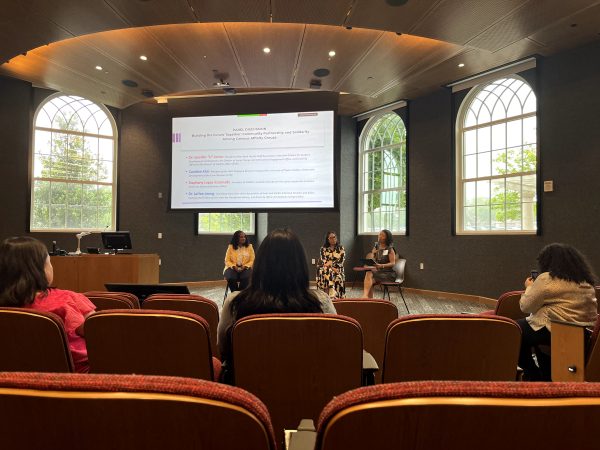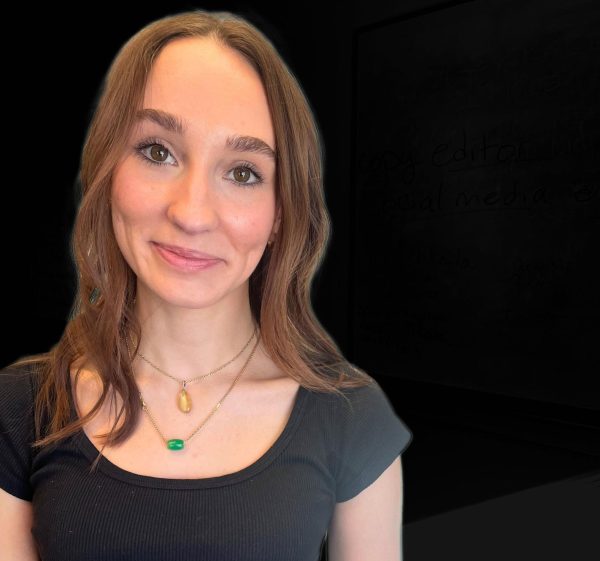Women leaders of SMU’s community of minority affinity groups came together to share the importance of these groups on college campuses for the opening panel of the second annual Asian, Asian American, and Pacific Islander Voices in Higher Education Symposium on Tuesday, April 16.
The panel’s theme of community building and resilience was echoed by panelists who stressed the necessity of allyship. Allies, the panelists explained, provide proper support for students of all races and ethnicities. Dr. LaiYee Leong expressed the positive results of allyship shown throughout history.
“The Asian American movement was inspired in many ways, by the Civil Rights movement and by our African American colleagues, friends, and fellow Americans,” Leong said. “So as far as allyship goes, it’s about moving forward together as well advocating for supporting faculty, staff and students all together.”

With the increasing number of minority students on predominately white college campuses, these students must have spaces where they feel safe and heard by their faculty and peers. Many students use affinity groups as a resource for mentorship as they navigate the journey of being a college student while building connections with other affinity groups on campus.
Dr. Jennifer Jones serves as Executive Director for Student Development and Engagement, Director of Social Change and Intercultural Engagement and Student Affairs Diversity Officer at SMU. Jones expressed her gratitude for the affinity groups that guided her as a college student at SMU and stressed the importance of providing the same experience to students here at SMU.
“We continue to provide resources not only for our students but also for faculty and staff and to create a sense of belonging within the Black community,” Jones said.
Caroline Kim, a panelist from The University of Texas at Dallas, touched on the goals of the Asian and Pacific Islander Employee Resource Group (ERG) that was recently formed because of the increasing number of AAPI students and staff attending UTD.
“It’s about 33 or so percent, who identify as Asian, Asian American,” Kim said. “That’s, again, the second largest group that we have so it’s really important that we have an ERG that really reflects what the campus looks like.”
Recently, some public Texas universities have been enforcing bans on DEI programs in light of SB 17, and many educators are concerned that affinity groups are next. A woman in the crowd from Dallas College expressed her sorrow with tears in her eyes over the disappearance of their DEI office and in turn their ERG’s following Texas’ ruling on DEI programs in schools.
“I work at Dallas College, and the DEI office disappeared almost immediately and it did have an effect on all of the ERG groups because the office was the hub,” she said.
As college campuses become more diverse the importance of cultural awareness grows. Events like this symposium allow the SMU community to educate themselves about different cultural groups and their backgrounds. Other universities have followed suit in implementing different affinity groups and ERG’s to better support their diverse students and staff, Dr. Charoensap-Kelly Piyawan said. Piyawan is excited about these new changes.
“There’s always more to be done for everyone to really share the same space and just feel safe and feel authentic and feel like we can be who we are in that space,” Piyawan said. “That’s why we need to do it [host events like this symposium].”
The panel emphasized that inclusivity is a part of American history and allies can help advocate for more inclusive teachings in schools and supportive faculty, staff, and students. Dr. LaiYee Leong expressed the importance of including Asian-American history, African-American history, and Latino-American history in the teachings of typical American history in schools and how allies are an important component in achieving this.
“Allies [are] so important in, getting that message out because it’s not always recognized, and I think, you know we’ve been very fortunate to SMU in that inclusive excellence is actually a part of the pillar, the pillar in our strategic excellence plan of the university,” Dr. Leong said. “That has, I think, provided a lot of support in what we do.”














